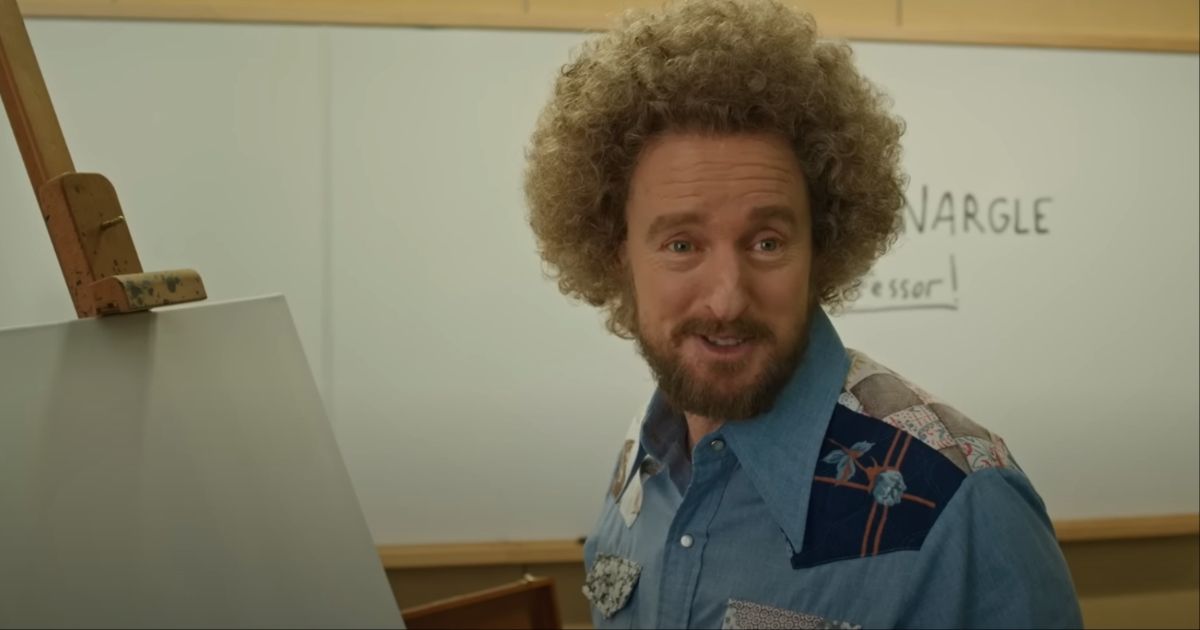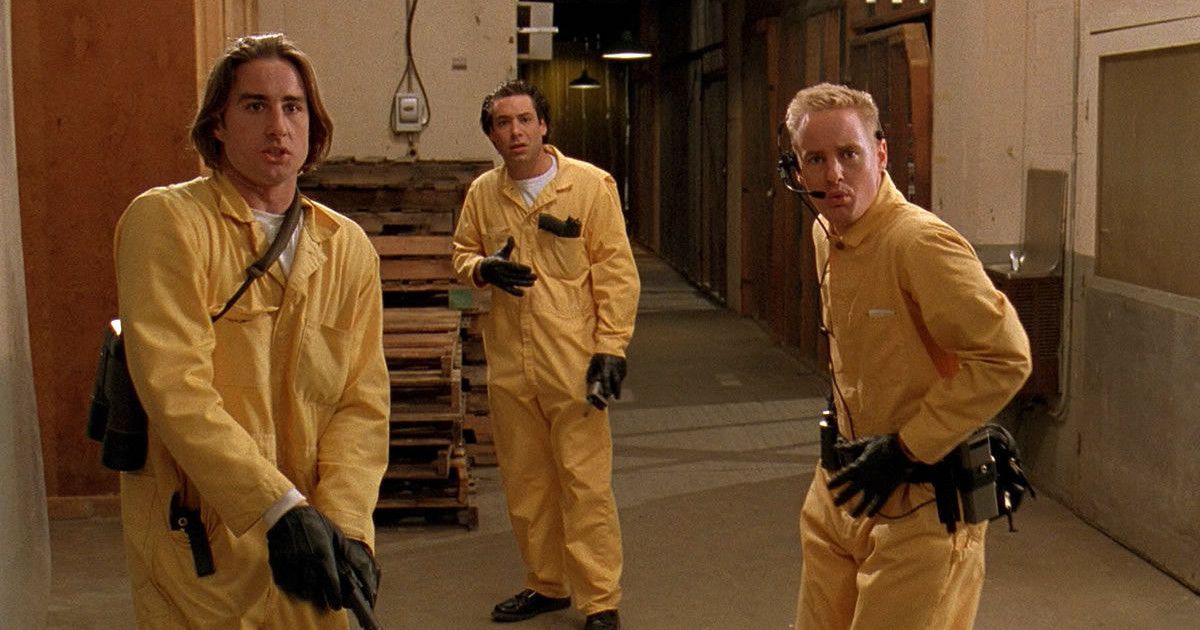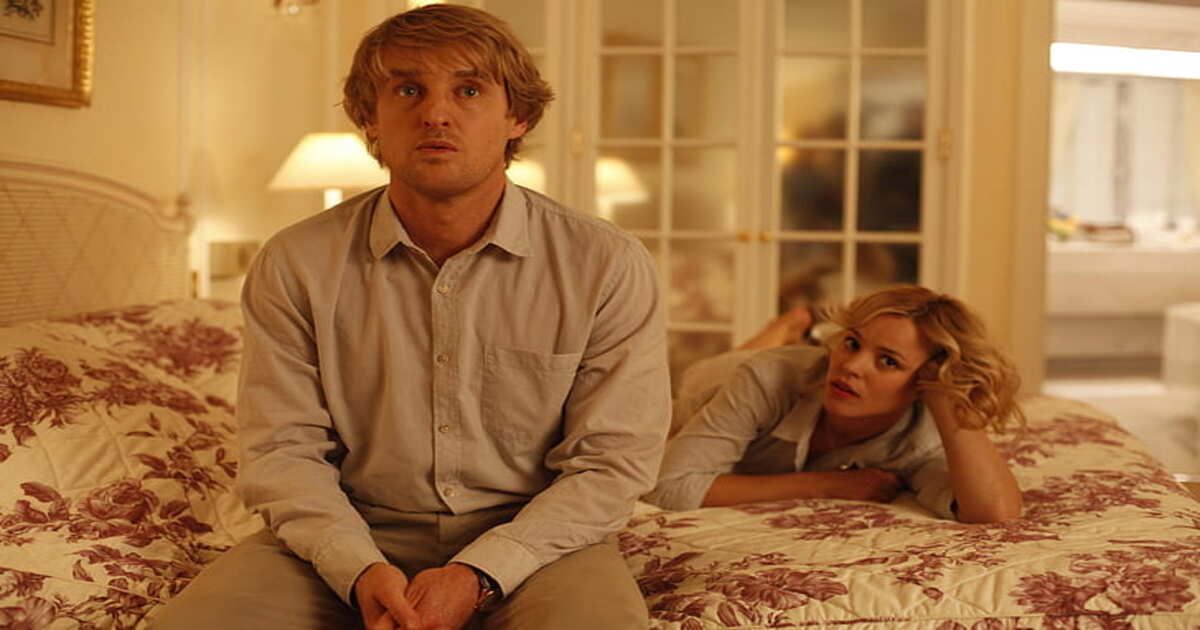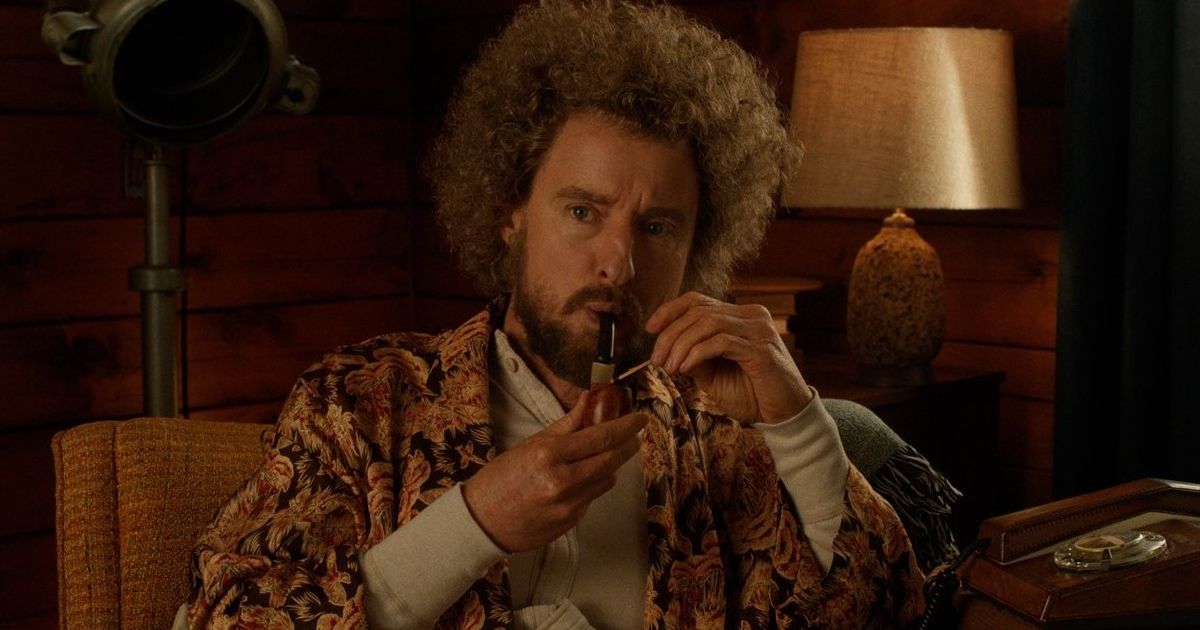Owen Wilson is back in another buzzy role with his new film Paint, with a trailer that revealed he’s playing a Bob Ross-esque television star artist that delights viewers with his simple lessons about life. The film is not a straight biopic about Ross’ real life, and in fact the film’s comedy is centered around the idea that Wilson’s character, Carl Nargle, is nothing like the infamous pop culture icon that he embodies. Unfortunately, Paint doesn’t really work as a comedy, but the rare moments that Wilson shows his more dramatic side are actually fairly engaging. Those that were excited about the stills of Wilson in costume might still find the film worth seeing in theaters simply to appreciate his performance.
Wilson is best known for his comedic roles thanks to his frequent collaborations with Vince Vaughn, but there’s a surprising amount of dramatic work hidden within his filmography. While Inherent Vice, Midnight in Paris, Armageddon, Loki, and his collaborations with Wes Anderson certainly have their comedic elements, they each have moments where Wilson is forced to shake aside his comedic mannerisms and deliver an honest performance. While Paint is hardly going to earn Wilson any serious awards buzz, it shows that he’s not quite the funnyman that some of his more comedic work has made him out to be. It would be exciting to see him take on more dramatic roles in the future.
His Past Performances
Wilson actually made his cinematic debut in the Anderson short film Bottle Rocket, which he co-starred in alongside his brother Luke; Anderson later expanded the premise into his first feature length film. It’s certainly a funny movie, but there’s a lot of darkness there that gets overlooked when looking at Anderson’s filmography late on. Wilson’s character Dignan is a manipulative bank robber who is forced to acknowledge that he will never achieve his goals, and Wilson conveys those feelings honestly. In fact, Wilson’s work got a shoutout from the legendary director Martin Scorsese, who said that he “loved the people in this film who are genuinely innocent” (via Far Out Magazine). Scorsese went on to cite Bottle Rocket as one of the top 10 best films of the 1990s during his discussion with Roger Ebert.
Similarly, Wilson turns in another more sensitive performance in another Anderson film with The Royal Tenenbaums, in which he co-stars as Eli Cash, who is ironically the best friend of Luke Wilson’s character Richie Tenbaum. It’s once again an amusing performance in which Wilson is upfront with the character’s flaws; Eli ends up having to check into a rehabilitation facility in order to cope with his mental health struggles and alcoholism. Eli’s character arc wouldn’t be effective and inspiring if Wilson was constantly being over-the-top and cracking jokes. In fact, Wilson himself is integral to the film’s brilliant message. He co-wrote The Royal Tenenbaums with Anderson, and they jointly received an Academy Award nomination for Best Original Screenplay.
It’s admirable that in more stripped down and serious roles, Wilson is able to completely disappear. All memories of his hilarious character from The Wedding Crasher can be instantly forgotten within dramas like Behind Enemy Lines, No Escape, Minus Man, and Permanent Midnight. While none of those films are necessarily classics, Wilson’s work stands out within the respective ensembles.
Playing Flawed Characters
Wilson’s best work on both the comedic and dramatic side has come when he has played flawed men who have to admit to their imperfections. Not only can this create empathetic characters who are caught in comedic situations, but it can help make the struggles of a dramatic character more impactful. Wilson balanced those two responsibilities when he gave one of his best performances in Woody Allen’s 2011 romantic dramedy Midnight in Paris. He starred as the nostalgic writer Gil Pender, who takes a romantic tour to France with his obnoxious fiancée Inez (Rachel McAdams). While Inez is materialistic and doesn’t care about the rich history of Paris, Gil is obsessed with classical writers and essentially lives in the past.
Gil is an interesting character purely because of the earnestness that Wilson brings to the role; Gil’s preferences and passions may be odd, and they occasionally make him out of touch with modern society. Wilson was able to play a disheveled character who is taken advantage of, as Inez begins lying to him; she has an affair behind his back because he’s not paying attention to her. Wilson makes Gil’s transition into maturity compelling, as he is open to change. Gil realizes that the past is a beautiful place to reflect on, but not to live in. It’s through Wilson’s subtle work that the audience understands the film’s message is to appreciate the things that they have, and not spend their time dreaming of what could have been.
Staying Relevant
It might be difficult for an actor as thoroughly committed to comedy as Wilson right now, as recently theatrical comedies have not been performing well at the box office. It’s sad that truly excellent modern comedies such as Bros didn’t reach a widespread audience, but in an era where streaming has become so prevalent, viewers seem less likely to head out to theaters to laugh with a crowd. Unsurprisingly, many of Wilson’s contemporaries and co-stars have taken risks with giving more dramatic performances that are wholly unlike their previous work.
Jonah Hill earned two Academy Award nominations for Best Supporting Actor for Moneyball and The Wolf of Wall Street, respectively, and those roles couldn’t have been more different than Superbad. Many of Wilson’s other co-stars have experimented with even darker work, such as Jason Segal in The End of the Tour, Vince Vaughn in Brawl in Cell Block 99, Steve Carrell in Foxcatcher, and Adam Sandler in Uncut Gems. It’s been exciting to see Wilson take these same risks, even if some of his efforts are more successful than others. The fact that he’s still trying to improve himself signifies that he’s found a way to stay relevant.




